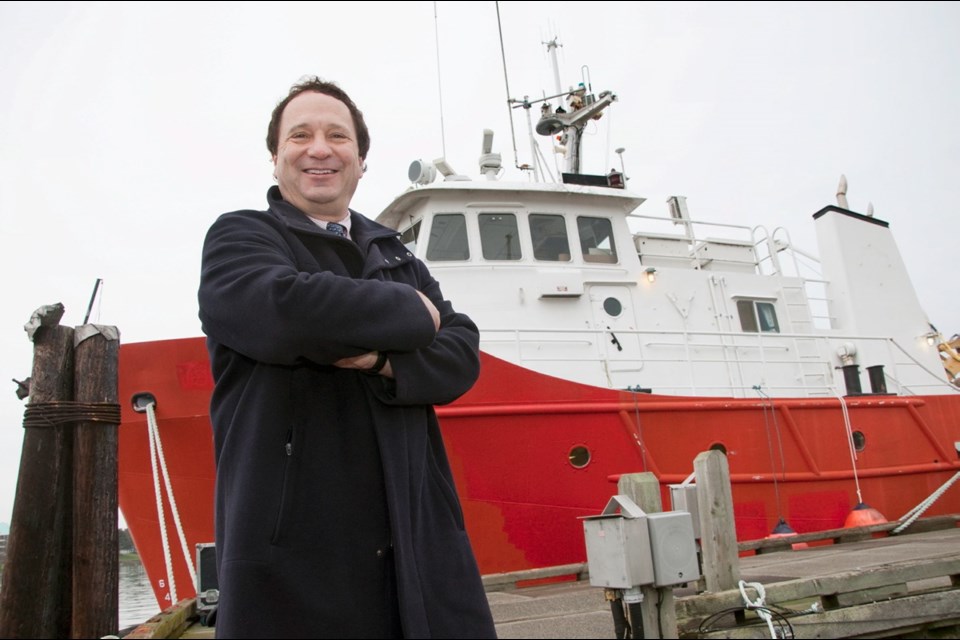Marine scientists are looking to coastal Indigenous peoples and their oral histories to add a new element to their scientific data.
Kim Juniper, a professor in the University of Victoria’s School of Earth and Ocean Sciences and chief scientist with UVic-based Ocean Networks Canada, said scientists are starting to realize the treasure trove of knowledge gathered by coastal Indigenous peoples over thousands of years.
“We have a lot to learn from people who have been living on the edge of the sea and using its resources for millennia,” Juniper said. “They know how the [ocean] system works, even if it’s not documented in scientific textbooks or research publications.”
Last summer, Juniper was an organizer of a scientific conference called Ocean Observations 2019 in Hawaii that attracted 1,500 scientists from around the world, along with delegates from the worldwide International Oceanographic Commission and UNESCO.
At his suggestion, Juniper said, the conference — which occurs every 10 years — reached out to coastal Indigenous peoples. Even with little time to find those who might be interested, it managed to attract 53 official delegates, including representatives from Fiji, Samoa, Maori New Zealand and Hawaii.
Canada sent seven delegates, two from B.C., two from Nunavut, two from Atlantic Canada and one young person. The Indigenous delegation brought a carved and painted Coast Salish paddle for their Hawaiian hosts. (“I had to go through U.S. immigration and it was interesting to try and board a plane carrying what looked like a five-foot club,” Juniper said. “Interestingly, they had exceptions for ceremonial or religious objects.”)
Juniper said the Indigenous delegates quickly formed committees and caucuses, making presentations and asking questions of scientists. They prepared a declaration — looking for a chance to be part of future scientific research and data compilation — that was handed to UNESCO and the International Oceanographic Commission.
Delegate Moses Martin, an elder from the Tla-O-Qui-Aht First Nation near Tofino, came away disappointed, however, that no progress was made in coming up with a way to deal with rising ocean temperatures.
As a lifelong fisherman, Martin, 78, said he is already seeing links between rising ocean temperatures and smaller catches and wants to see action.
“What I was hoping to hear was how are we going to find some way of dealing with rising temperatures,” he said. “We have to start somewhere.”
But Juniper said the conference was a good starting point for ocean scientists, governments and policy makers, who learned the depth of knowledge of coastal Indigenous peoples.
For example, a Hawaiian Indigenous representative described how his people laid fish traps in certain directions, depending on the weather and the season.
“They knew when winter storms came in, the fish would move in the opposite direction,” said Juniper.
Others spoke of how patterns in the sky and clouds would predict the arrival or locations of certain fish species.
Juniper said those sorts of observations can be of significant use to science, because they are the product of thousands of years of observation and experimentation by Indigenous peoples.
By contrast, a research project that lasts five years is considered a long-term observation, he said. “It’s tough to even get funding to go longer, because you’ll be told to move on to watch something else.”
In addition, most scientific data only goes back about 100 years, making Indigenous traditions and knowledge even more valuable.
These kinds of long-term observations are especially important in the context of climate change. As air and ocean temperatures warm, weather patterns and species distributions are shifting and coastal Indigenous people are being hit right in their homes.
For Arctic people, the thinner sea ice, melting permafrost and warmer seasons are outside anything their traditional knowledge can explain.
“In the Arctic, things are evolving really quickly,” said Juniper. “So their traditional knowledge no longer applies.”
He says scientists need to start working with coastal Indigenous peoples on research that will help make the ocean a more predictable neighbour for them.
“The only way that is going to work is through a combination of traditional understanding of the dynamics of ocean systems and with modern sensors and scientific instrumentation,” said Juniper.
Indigenous people can be trained and equipped to start collecting data on the ecological health of ocean systems, and can even begin to make their own predictions, he said.
“They shouldn’t have to ask industry or government what is going on in their own backyards,” said Juniper. “There are ways of getting data beyond just the use of sensors.
“So how can we begin to incorporate their understanding into planning and ocean management and ocean governance?”



